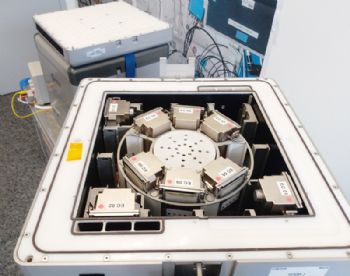
Scientists in Scotland are leading an international project to develop devices that will use bacteria to extract minerals and metals from rocks on the Moon and Mars.
Rock mining in space could open up a new frontier in space exploration by giving astronauts the resources they need to stay for long periods.
Scientists based at the University of Edinburgh (
www.ed.ac.uk) have produced 18 matchbox-sized prototypes, called biomining reactors, to test how low gravity affects the ability of bacteria to extract materials such as iron, calcium and magnesium from space rocks.
Astronauts are currently testing these devices on board the International Space Station, following the successful launch of a SpaceX Falcon 9 rocket at the end of July.
They will then be returned to Earth to be analysed in a lab.
Charles Cockell, who is leading the project, said: “This experiment will give us new insights into the behaviour of microbes in space, their applications in space exploration and how they might be used more effectively on Earth, given the myriad ways that microbes affect our lives.”
The experiment in the International Space Station will also study how microbes grow and form layers — known as biofilms — on natural surfaces in space.
Rosa Santomartino, who will lead the study of the rocks when they return, said: “Microbes are everywhere; this experiment will give us new ideas about how they grow on surfaces and how we might use them to explore space.”